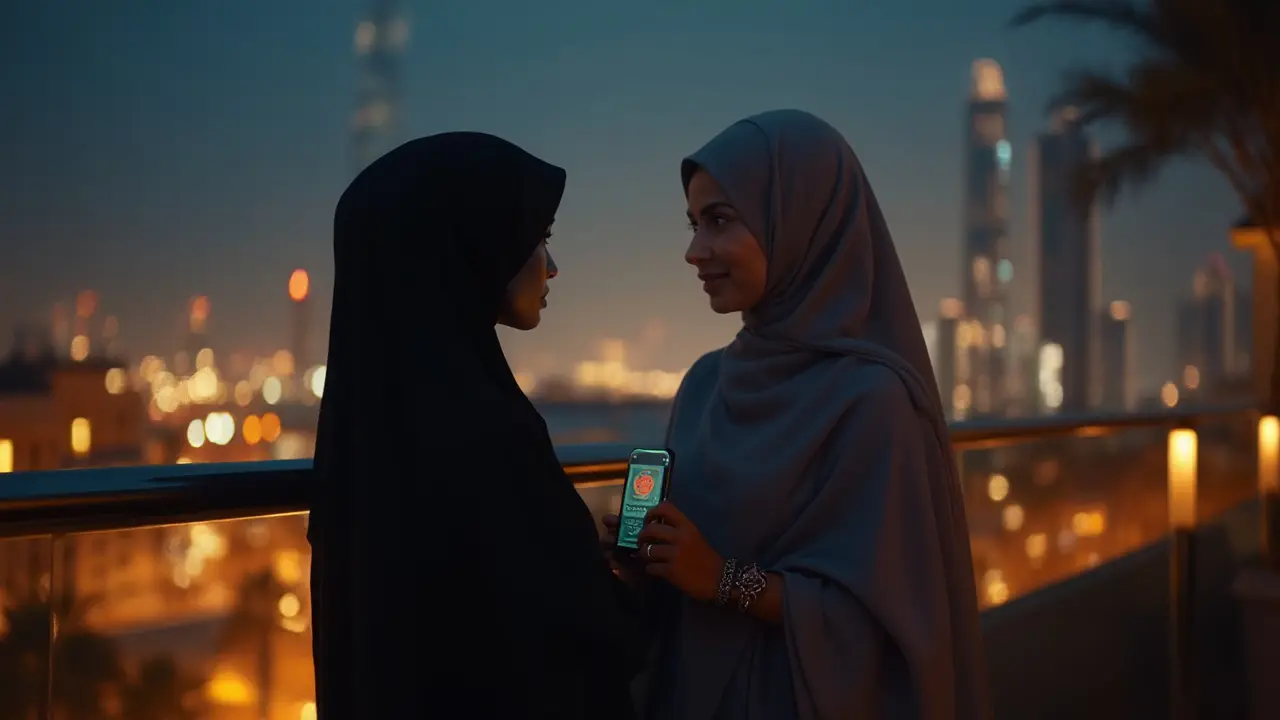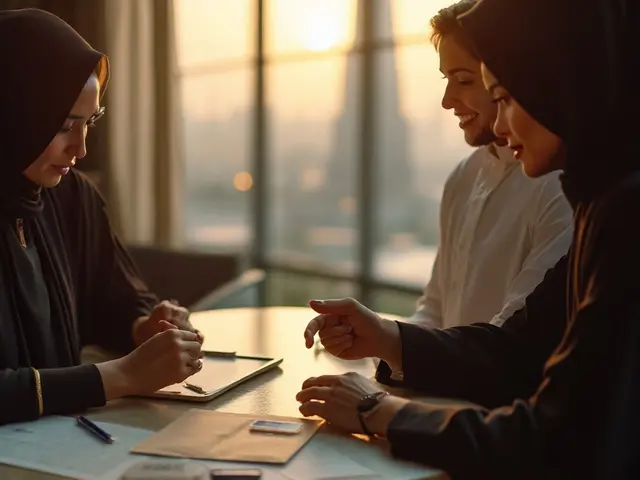Direct Answer and Key Points
If you’re searching this, you want subtle, safe ways to communicate interest, boundaries, and consent without risking privacy or running into legal trouble in Dubai. Here’s the straight answer: use pre-agreed gestures, context-aware code words, and low-key digital signals that fit daily life. Keep everything consensual, private, and non-explicit in public. Respect UAE laws, protect your identity, and prioritize safety checks before any meeting.
- TL;DR: Pre-plan a simple set of signals for yes, no, slow down, and check-in. Keep chats neutral, move sensitive talks to encrypted apps, and meet in public first.
- Core discreet cues: jewelry placement, tapping patterns, safe-hand signals, code words that fit casual conversation, and traffic-light emojis when texting.
- Safety first: vet people, use a safe call, share live location with a trusted friend, and never exchange explicit content online.
- Legal reality in the UAE: public decency rules are strict. Keep play private, keep language neutral, and avoid public displays that could be misread.
- For coaching or education, consider private relationship communication coaching or online workshops with verified professionals.
Quick expectation check: this guide is about discretion, consent, and etiquette - not explicit content or illegal services. Think communication protocols and safety nets you can actually use in Dubai.

Guide to Discreet Cues and BDSM Etiquette in Dubai
Staying discreet in Dubai isn’t about being secretive for the thrill of it - it’s about protecting yourself. I live here, I walk my dog Ashby around Kite Beach, and I know how easily a private interest can bump into public rules. The goal is to enjoy your dynamic in a way that’s safe, respectful, and invisible to anyone who isn’t part of it.
Mistress Dubai is a popular search phrase, but what most people actually need are practical, neutral ways to communicate. That means cues you can use in a cafe, at a brunch, or via text without raising eyebrows.
Definition and context: Discreet cues are pre-agreed signals - tiny, ordinary actions that carry meaning only to you and your partner. They replace explicit talk or gestures in public. In a city with strict norms around public behavior, they’re your shared whisper in a crowded room.
Why it matters here: The UAE enforces public decency. You want zero public kink signaling, zero explicit content in chats, and zero assumptions that strangers will understand your context. Keep it kind, private, and mutually understood.
Benefits:
- Privacy: protects your identity and job - useful for expats and locals alike.
- Safety: a backup plan if someone freezes or gets nervous in public.
- Clarity: avoids mixed signals while keeping conversation clean.
- Consistency: same cue set works at home, at a restaurant, or while traveling.
Types of discreet cues that work in Dubai:
- Jewelry placement: ring on right hand means “I’m comfortable” today, left means “go slow”. A bracelet flipped inward could mean “I need a check-in”. This looks like normal fidgeting to everyone else.
- Tapping patterns: two taps on a glass or table for “yes, keep going”, three taps for “pause and check-in”, an open palm placed on a table for “hard no”. Easy, silent, and natural.
- Eye contact and posture: steady eye contact for 2 seconds and a nod indicates “I consent to the plan we discussed”. Breaking eye contact plus folded arms means “not today”.
- Hand signals: palm up slightly for “slow down”, palm down for “I’m fine”. Keep it subtle - nothing theatrical.
- Code words that fit casual talk: “Let’s grab tea later” can mean “switch to private chat now”. “Long day” can be “I need aftercare check-in tonight”. Pick words you naturally use.
- Traffic-light emojis in text: green circle for “good”, yellow for “caution”, red square for “stop”. Emojis are neutral and blend into everyday messaging.
- Time-based micro-cues: agree that any message sent at 21:11 is a check-in request. Looks like a random time stamp to others.
Digital etiquette that keeps you safe:
- Move from dating apps to encrypted messengers when you’re both comfortable.
- Don’t send explicit photos or discuss illegal activity. Keep language neutral - talk about “comfort levels”, “boundaries”, and “aftercare”, not explicit acts.
- Use disappearing messages sparingly. Don’t rely on them for critical consent or safety info - those should be written clearly.
- Turn off geotagging in photos. Check app privacy settings often.
Consent framework you can use today - the 4-box method:
- Yes box: what’s fully okay today.
- Maybe box: needs a check-in cue first.
- No box: not today - no nudging.
- Aftercare box: how you’ll reconnect - a call, a snack, quiet time, or a check-in text in 30 minutes.
Share your boxes in neutral language before meeting. It’s clear, adult, and doesn’t read as explicit if someone glances at your phone.
How to find education and services in Dubai (without crossing lines):
- Relationship and communication coaches: look for certified coaches or therapists who focus on consent, boundaries, and couple dynamics. Ask about confidentiality policies up front.
- Wellness workshops: stress-management, breathwork, and communication workshops can teach grounding and check-ins that map neatly to kink contexts.
- Private couples therapy: licensed professionals who can facilitate consent conversations. Search for trauma-informed practitioners and ask about anonymity.
- Online communities and courses: vetted, moderated spaces that teach safety, negotiation, and aftercare. Keep your identity protected.
Be cautious of anyone advertising explicit services. In the UAE that’s a legal risk. If you travel, research local laws at your destination and keep discretion the default.
What to expect during a low-key first meet:
- Chat on a public terrace or quiet cafe. Keep talk neutral - preferences, comfort levels, aftercare needs, and safety plans.
- Agree on 4 cues: yes, slow, stop, and check-in. Pick something you could do while sipping coffee.
- Confirm logistics: safe call, live location to a friend, and a clear end time.
- Leave with a written summary in your notes app: the cue list and aftercare plan.
Pricing and booking - what is realistic here:
- Communication coaching in Dubai: AED 300-800 per hour depending on credentials and format.
- Private therapy: AED 400-1,200 per session for licensed clinicians - verify licensing and confidentiality.
- Online education: AED 100-500 for group classes, AED 300-900 for private consults.
Booking tips: use real names with professionals, ask for a written confidentiality policy, pay through official channels, and avoid any provider who blurs coaching with illegal services.
Legal basics you should know:
- Public decency rules apply. Keep affectionate displays minimal and non-suggestive in public.
- Avoid sharing explicit content online. The UAE Cybercrime Law addresses harmful content distribution.
- Keep everything consensual and private. When in doubt, do less and speak neutrally.
Safety tips that actually help:
- Use a safe call: someone you trust calls at a set time and expects a code phrase - “Ashby’s fed” = I’m fine, “I’ll feed Ashby later” = come pick me up now.
- Share live location with a trusted person. Set an end time and a check-in.
- Meet in public first. If it doesn’t feel right, it isn’t right.
- Carry a fallback plan: a rideshare app open, a nearby hotel lobby you can sit in, and cash on hand.
- Health and comfort: hydrate, eat, and agree on a time limit. Emotional safety is safety.
| Approach | When to use | Pros | Risks | Examples in Dubai |
|---|---|---|---|---|
| Discreet cues | Public or semi-public spaces | Private, natural, low risk | Can be misread if not pre-agreed | Tapping glass, ring position, casual code words |
| Overt communication | At home or in private | Crystal clear, fewer misunderstandings | Not suitable for public settings | Traffic-light talk, written checklists, debriefs |
| Digital messaging | Before and after meeting | Asynchronous, documented | Privacy and legal concerns if explicit | Neutral language, no explicit media |
A simple checklist you can copy:
- Pick your 4 cues: yes, slow, stop, check-in.
- Agree on a neutral safe word for private settings.
- Set a safe call and location share.
- Write your 4-box consent plan.
- Plan aftercare and the timing for it.
Real-life examples:
- Brunch scenario: you’re at Jumeirah with friends. You rub your thumb and forefinger twice - your partner knows it means “switch topic”. It looks like you’re adjusting your napkin.
- Mall coffee: partner taps the cup three times. You pause the chat and ask, “Want to stretch our legs?” That’s the pre-agreed check-in.
- Private dinner: you say “Let’s put on a playlist” which means “Let’s review our boxes before we continue”. It’s smooth and unremarkable to anyone listening.

FAQ, Next Steps, and Troubleshooting
FAQ
Is BDSM legal in Dubai? Private consensual intimacy between adults belongs in private, and public decency rules are strict. Keep everything discreet, non-explicit, and respectful. For legal clarity, professionals often reference the UAE Penal Code and Cybercrime Law - if you’re unsure, seek legal advice.
Can I meet a professional dominatrix in Dubai? Advertising or seeking explicit services is a legal risk. If you want guidance, look for certified communication or relationship coaches who teach negotiation, consent, and aftercare. Keep expectations aligned with coaching and education - not services.
What’s a safe word versus a discreet cue? A safe word is for private settings where you can speak freely. A discreet cue is silent or neutral for public spaces. Have both - cue for public, safe word for private.
How do I avoid mistakes with signals? Keep the set small - 4 cues max. Rehearse once. Write them down. If either of you forgets, switch to overt communication privately.
What if my partner is new to this? Start with the 4-box plan and one or two cues. Do a short, low-stakes outing to practice. Debrief for 10 minutes later and adjust.
How do I handle nerves or sudden anxiety? Pre-agree a grounding cue like pressing both feet flat, then taking 3 slow breaths. If anxiety persists, end the outing kindly and reschedule.
What should our chat look like? Keep it neutral: “comfort level”, “boundaries”, “aftercare”, “time limits”, “check-in”. No explicit language, no explicit media.
Next steps by persona
Beginners: set your 4 cues, write the 4-box consent plan, and schedule a 30-minute coffee meet to practice. Keep it light and end with a 10-minute debrief.
Couples wanting more structure: book a communication coaching session, build a shared note with your cue list, and add a monthly consent check-in on your calendar.
Expats working long hours: use time-based cues and weekly digital debriefs. Keep your app privacy tightened and avoid discussing sensitive details over work devices.
Residents who value privacy: stick to public-first meets, use a safe call every time, and keep aftercare simple - a walk, a tea, a check-in text at a set time.
Troubleshooting common issues:
- Mixed signals: reduce to two cues for a week - stop and check-in. Add more once you’re synced.
- One partner forgets cues: move to overt language at home first, then reintroduce one cue at a time.
- Public feels risky: shift to private settings and keep the window shades closed, music on, and phones away. Always debrief.
- Trust isn’t there yet: slow down. Do two more public coffee meets. Vet, verify, then decide.
- Anxious about legal boundaries: keep everything educational and consensual, avoid explicit talk in public or online, and consult a licensed professional if you need clarity.
A simple decision tree:
- New partner? - meet in public - set 4 cues - safe call - proceed only if both feel calm.
- Nervous today? - use yellow cue - shorten the plan - increase aftercare.
- Unsure about legality? - switch to coaching or therapy - keep chats neutral - no explicit media.
If you want more, look for long-form guides on consent communication, safety planning, and privacy-first dating in our Lifestyle category. Keep it simple and kind. Discretion is a skill - the more you practice, the more natural it feels.






